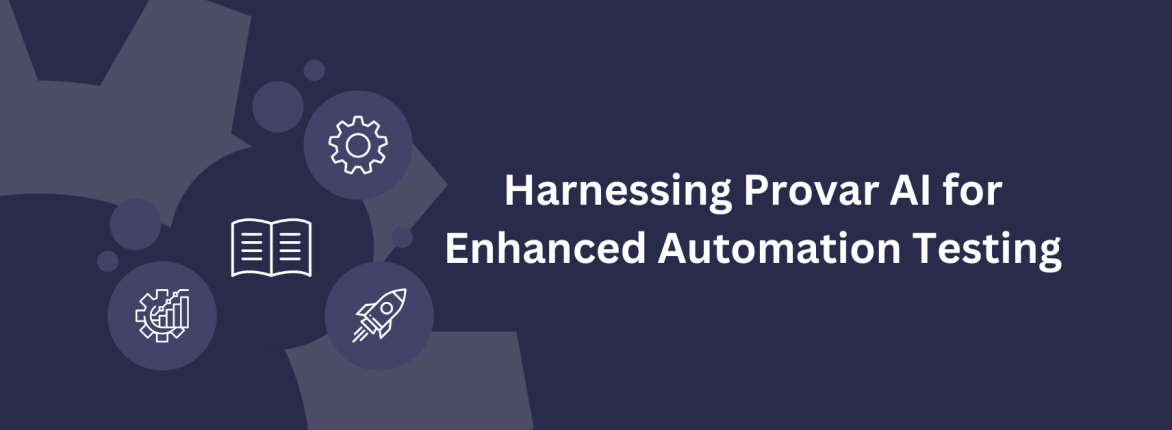As businesses continue to rapidly shift and innovate, organizations of all sizes are shifting from manual testing or basic automated testing with tools like Selenium to more advanced and comprehensive automated testing strategies. This evolution in testing promises substantial returns on investment and numerous benefits in speed to market, increased test coverage, and enhanced DevOps practices.
However, at the initial stages of this transition, developing a compelling business case for test automation to present to decision-makers is essential. At Provar, one of the questions we often get is, “How do I convince my team to take the leap forward with test automation?”
In this blog post, we will discuss how to develop a compelling business case for test automation so you can move forward with confidence. Keep reading to learn more!
Recognizing the Signs of Readiness for Test Automation
Transitioning to test automation can be a positive step forward for your business, but knowing when to make this move is crucial.
Here are some of the key signs that your business is ready.
Frequent Regression Testing
If your development team regularly performs regression testing to ensure that new code changes don’t break existing functionality, automation can save significant time.
Increased Release Frequency
Adopting Agile or DevOps methodologies often means increased release frequency. Test automation supports continuous integration and continuous delivery (CI/CD) by enabling rapid and consistent testing.
Expanding Test Coverage Needs
As your software grows in complexity, broader test coverage becomes critical. Automation allows extensive and consistent test coverage.
High Volume of Repetitive Test Cases
Automating repetitive test cases reduces manual effort and ensures accuracy and consistency.
Resource Constraints
When your QA team is stretched thin, automation can handle routine tasks, allowing your team to focus on more critical areas.
Pressure to Reduce Time-to-Market
Automation accelerates testing, enabling faster feedback and quicker releases.
Key Considerations for Developing a Business Case
When building your business case, be sure to emphasize the increasing ROI of automated testing. Consider adding the following points to your business case.
Reduced Manual Effort
Automated tests execute without human intervention, allowing QA resources to focus on higher-value tasks.
Increased Test Coverage
Automation allows for a broader range of tests, improving overall software quality.
Faster Feedback Cycles
Immediate feedback on code changes facilitates rapid defect resolution.
Consistency and Reliability
Automated tests ensure uniformity in execution, eliminating human errors.
As your organization grows, the benefits of automated testing become more pronounced, making the initial investment increasingly justifiable.
Strategic Steps for Implementing Test Automation
To present a compelling business case, you will want to outline the strategic steps your organization will take. Here are some steps to consider.
Define Your End Goal
Articulate the benefits for all stakeholders, including testers, developers, business users, and customers.
Map Out Your Business Processes
Identify, document, and prioritize key business processes that need testing.
Standardize on One Test Automation Tool
Using a single tool simplifies maintenance, ensures consistency, and improves collaboration.
Outline How to Achieve High Test Automation
Start simple, transition from manual or Selenium tests, and gradually expand test coverage.
Account for Legacy Systems
Ensure your chosen automation tool is compatible with legacy systems and can handle their specific requirements.
Handle Mergers and Acquisitions
Use automated tests to ensure seamless integration of systems during mergers and acquisitions.
Conclusion
Developing a compelling business case for test automation involves demonstrating the significant ROI, strategic alignment with business goals, and the transformative impact on software quality and delivery speed. You will want to be sure to highlight key factors like scalability, cost efficiency, speed to market, comprehensive coverage, and business continuity to resonate with decision-makers.
Investing in test automation transforms the way your organization develops, tests, and delivers software, ultimately driving greater business value and success. But you don’t need to make these decisions alone. For step-by-step, personalized guidance, be sure to reach out to a Provar team member!
Interested in discussing next steps further with a Provar expert? Connect with us today!










